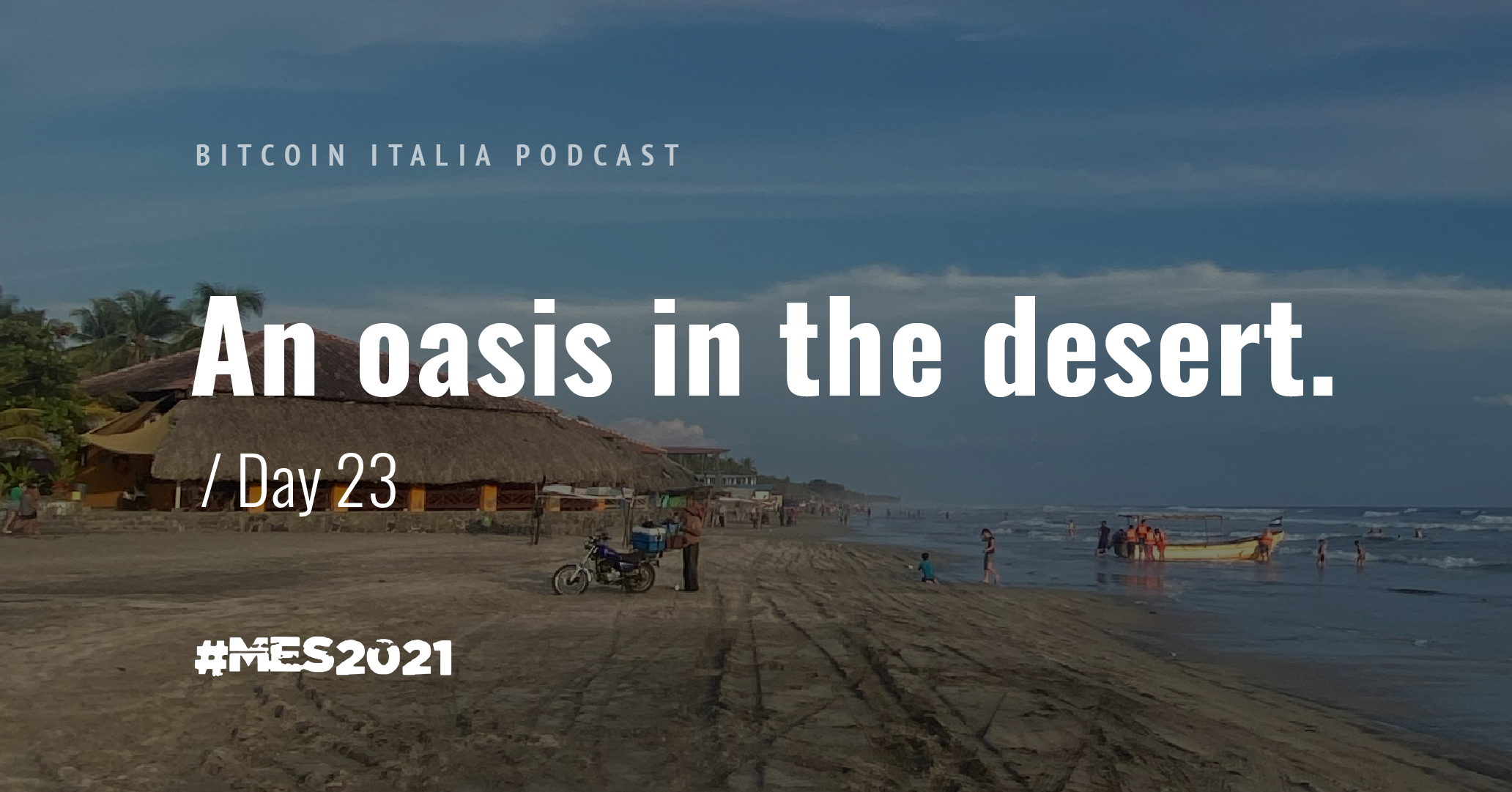

We’re in the southernmost part of El Salvador, the one closest to the equator, and maybe it’s just our feeling, but you can sense it. Today it’s very hot and there isn’t a breeze. We woke up early to face the usual breakfast of the Salvadoran champion. Protein in abundance. We decided to treat ourselves with a little road trip. We head towards the Bay of La Union, up to the isthmus of the Gulf of Fonseca, and then along the sea towards El Cuco. One of the most beautiful beaches in all of El Salvador, they tell us, among the favorite destinations of those who live in this area.
The landscapes that surround us are truly fascinating. We find ourselves in a sparsely populated area. The urban agglomerations that we cross along the carretera are very few and often limited to a sparse group of battered houses, with the inevitable gang of chickens that roam freely. The countryside is sunny, the turf is dry and yellowed but the vegetation is abundant. Everywhere large trees with thick green foliage create a nice color contrast. In the background are the omnipresent black, volcanic mountains, the typical curtain of El Salvador. The closer we get to the ocean, the more the landscape begins to change. To become what you would typically expect from the tropics. Palms, dates, banana trees. A dense undergrowth of plants totally unknown to us. This is a small nation, but it surprises you how much it can change its face suddenly, in the span of a few dozen kilometers.
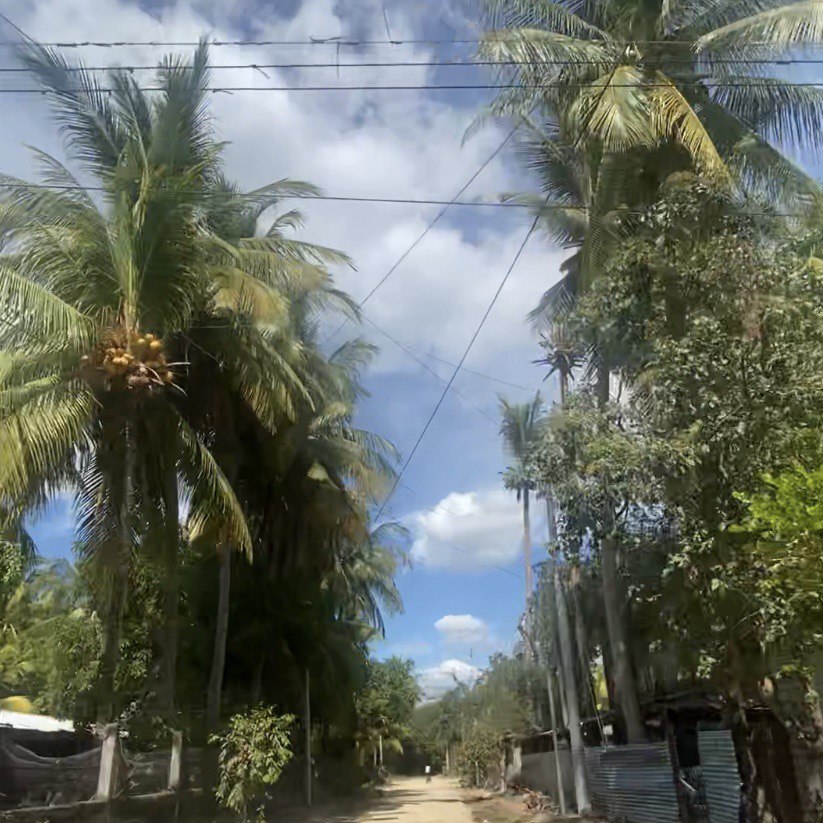
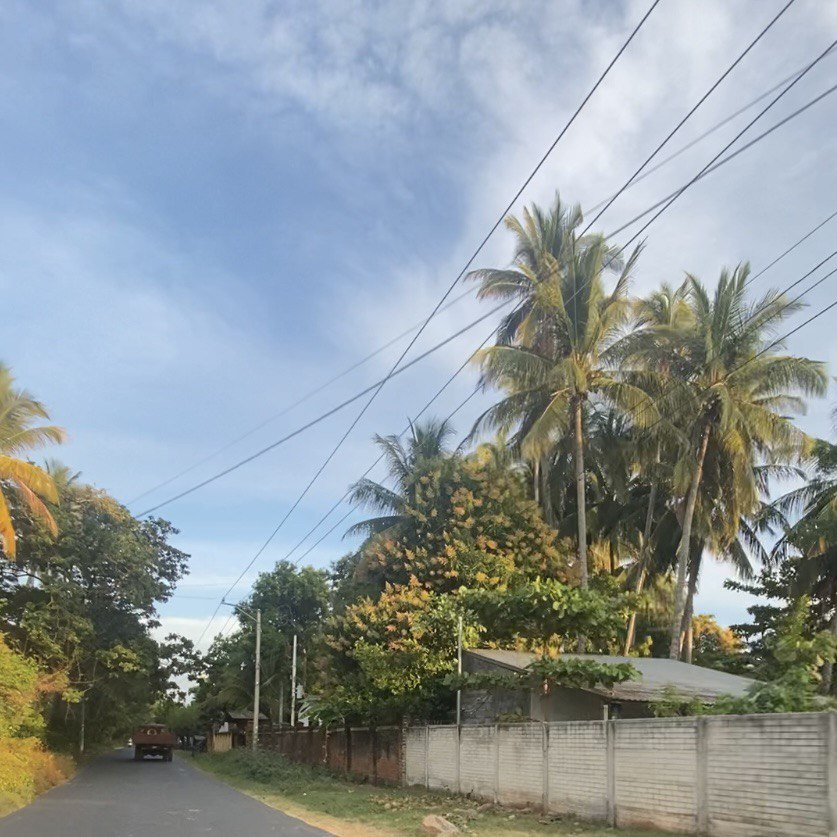
We finally arrive at our destination. El Cuco is an immense beach. Reminiscent of those in California. More than five kilometers of fine sand. It is quite crowded. It is located in a point more sheltered from the strong currents of the Pacific and for this reason the waves are much less imperious than the beaches further north, such as El Zonte. Here there are no surfers, but families and normal bathers. Along the shore is a constant stream of hotels, restaurants, small bars. All with the inevitable thatched roof and with that air a bit arranged. Typical of these parts.
We lie in the sun a few hours. There is plenty of space and the bustle of vendors is constant. We test out a few of them by asking if they have Chivo and if you can buy their goods in Bitcoin. They look at us like we’re crazy and walk away giggling. Looking around we realize that it is totally different here than the beaches we have seen so far in El Salvador. We are clearly the only foreigners here. You can also tell by the looks on people’s faces that stare at us curiously, as if our white skins were the stuff of Martians.
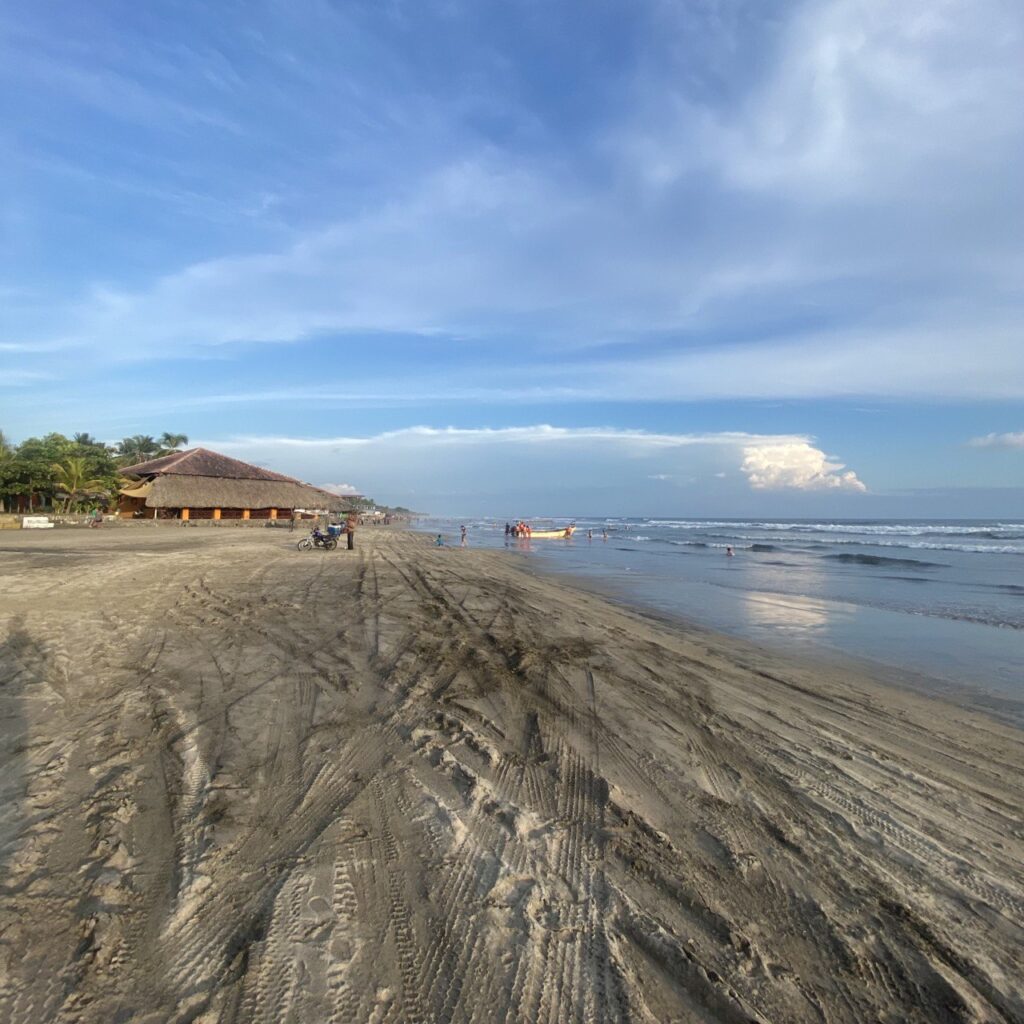
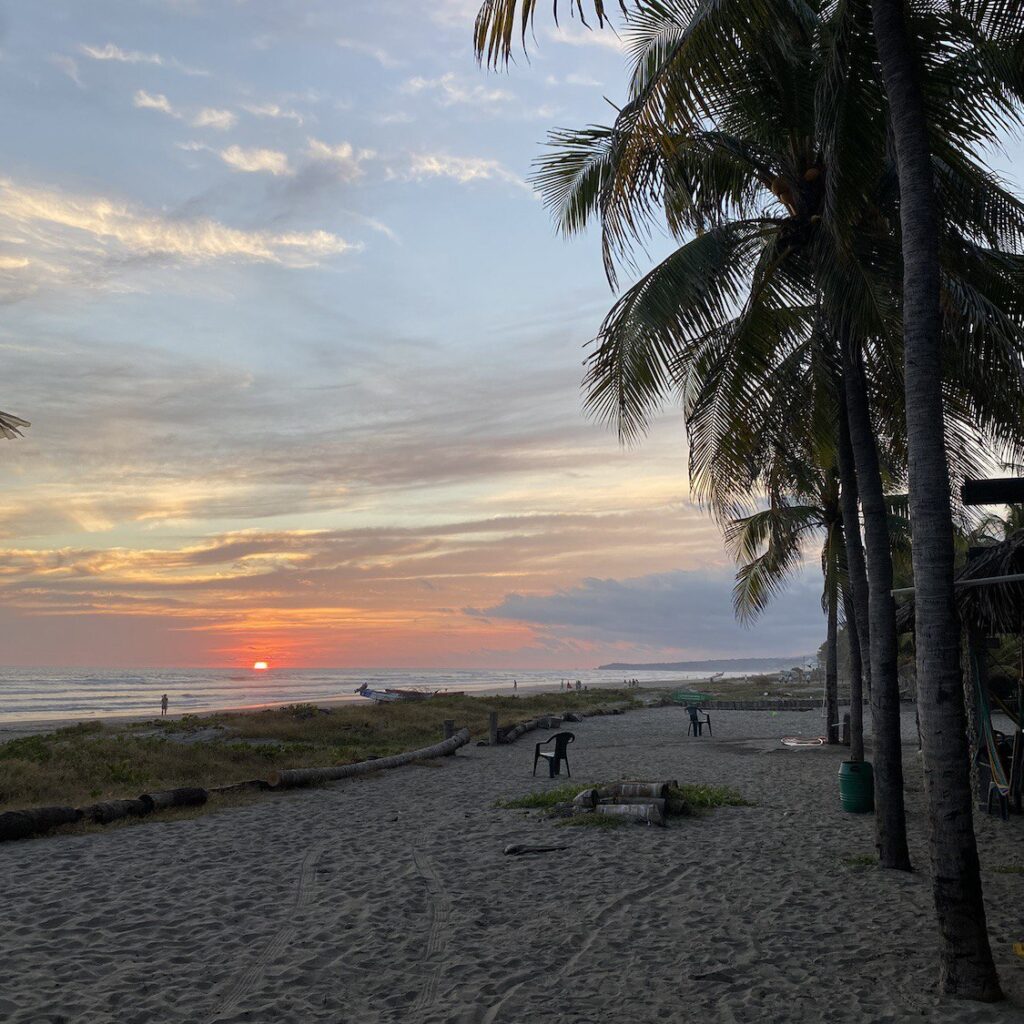
Lying on the towels we take a few hours of laziness. It feels good, the beach is breezy, the water is cool and the sound of the waves is relaxing. Soon, however, we get thirsty. It’s time to get some cold beers. We give each other tenacious looks. We know we’re going to have to sweat it out here.
We enter the first venue behind us. A large square with a roof of woven palm leaves, with music, tables and dozens of hanging hammocks. We approach. Behind the counter is a boy, he must be about sixteen. We ask if they accept bitcoin but the answer is obviously negative. We are about to leave when a lady gets up from the hammock she was lounging in and comes over to us. From the way she gesticulates to the boy she is the owner of the bar and definitely her mother. She has heard our request and wants us to know that no one on the beach accepts them except for a small store. She reaches out to point it at us. She really wants us to know that there is a madman in town who takes that devilish thing. She yells at the kid to walk us there and he does it.
We set off along the dirt roads of the village, following our guide. All around us is the usual conglomeration of shanty houses, decorated in the best possible way. The realm of do-it-yourself construction. I’m always fascinated by how human creativity, when necessary, can be ingenious. Another boy approaches, a friend of our guide. He asks us where we’re going and the other one says that we only have Bitcoin. He laughs and accompanies us. By now we are a small procession. People look at us amused. We arrive at the store. More of a garage really, with a few plastic tables inside, some patched up refrigerators and a griddle that cooks tacos and burritos. Hanging at the entrance a big banner: acceptamos Bitcoin. To our surprise the owner is not a little hi-tech kid, on the contrary. He is a sprightly old man. With a prominent belly and pale skin. We buy two beers and some water. We ask him why he is the only one who has taken the opportunity of digital payments. He tells us that the people here are tough and that there is only one other establishment besides his in the entire village. A pizzeria not far from there, across the street.
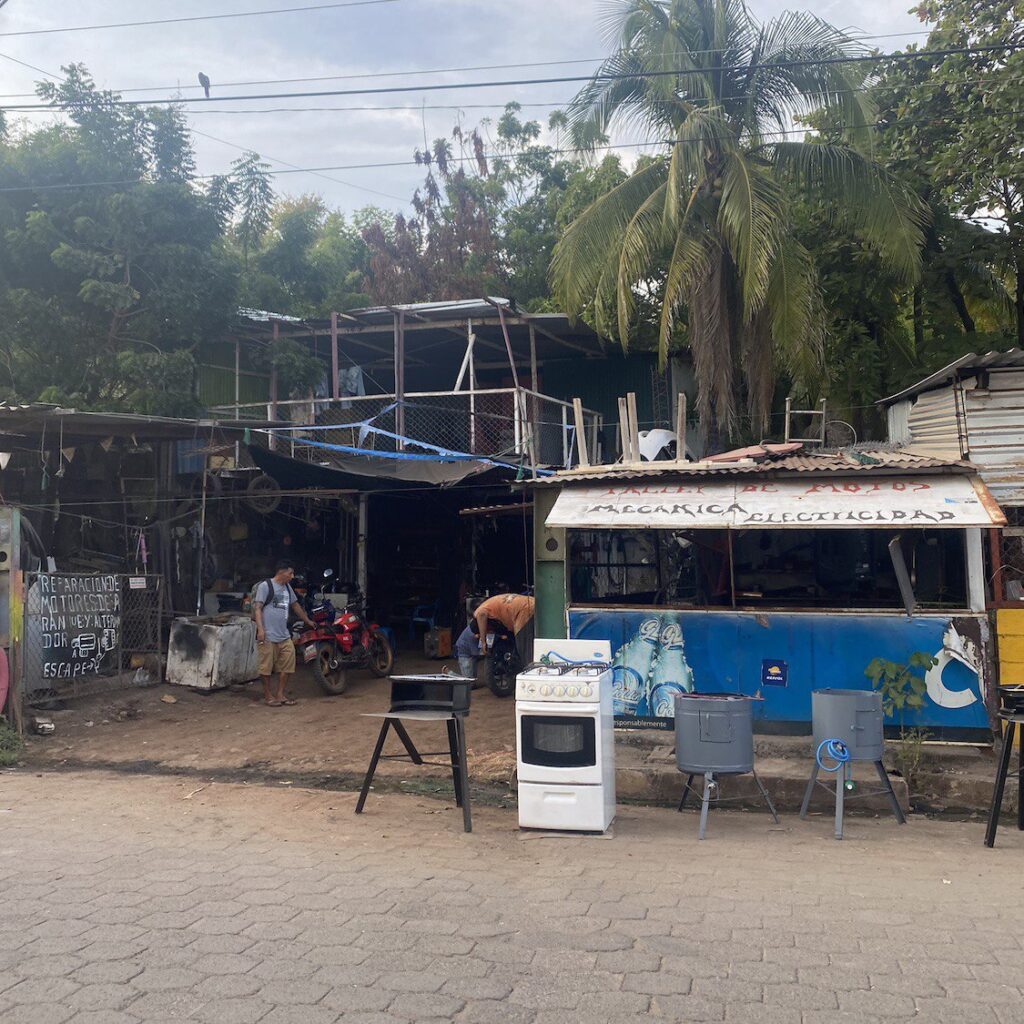
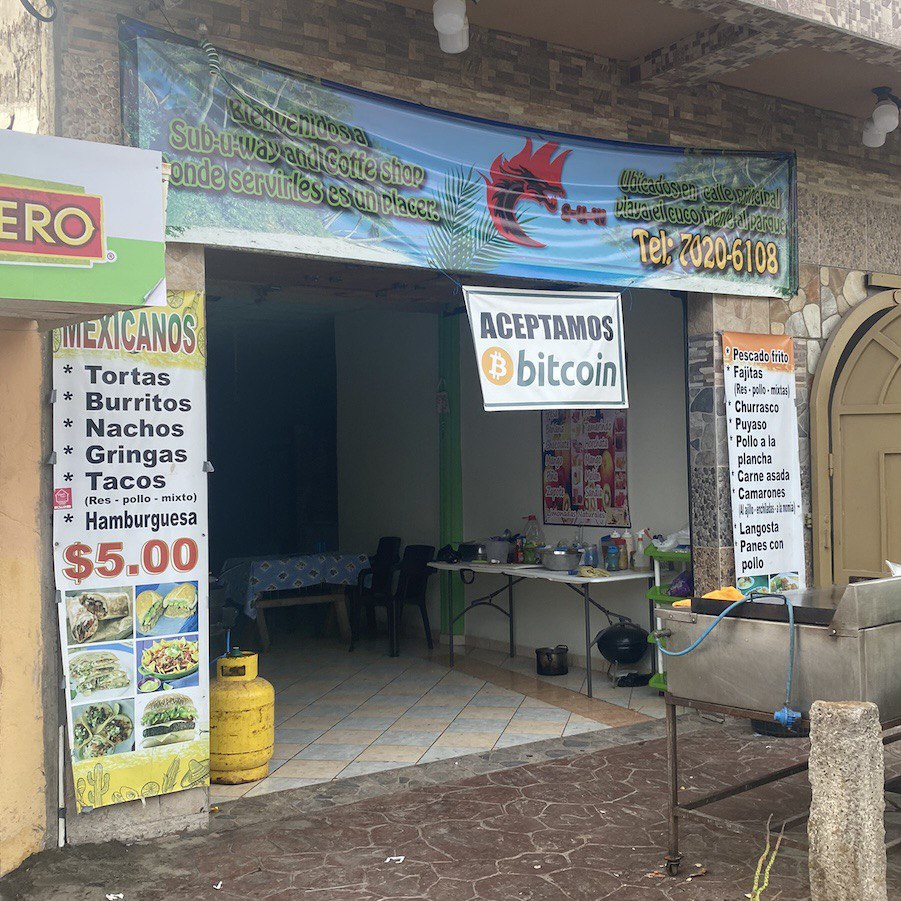
We thank our guide and refresh ourselves with our beers. Looking around we realize how much work there is still to be done in El Salvador. It is a society firmly anchored to cash that feels no need to replace it. Where foreign tourists arrive, even marginally, with their electronic gadgets, the stimulus is not to lose customers. To compete with competitors. But where one is among people from El Salvador, the object of desire is a few dirty and crumpled Yankee banknotes. Concepts such as inflation, uncontrolled issuance, reserves, savings, economic sovereignty, financial freedom, are light years away. Probably considered first-world sophistry. Here we really are in another dimension, in a parallel humanity and what counts is the certainty of the physicality of a bank bill. To be crumpled in the pocket or in the bra, without being too conspicuous.
The other thing that is just as certain, we know, is that dinner tonight will be either tacos or pizza.